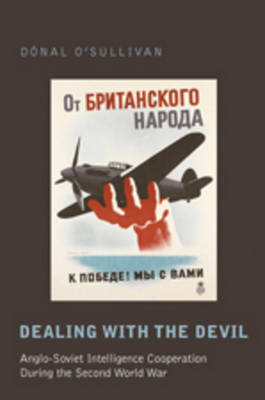Studies in Modern European History
1 primary work
Book 63
When Nazi Germany attacked the Soviet Union, Moscow officials expected the British Navy to appear on the shore of Leningrad, fulfilling the Bolshevik nightmare of a concerted Capitalist plot. Instead, Prime Minister Winston Churchill reached out to promise support to the Kremlin and collaborate with Britain's former archenemy. Fighting the Nazi menace together became the new priority, leading to unprecedented levels of cooperation between the two governments. In order to defeat the Nazis, Britain and the USSR shared intelligence and revealed operative secrets to each other, including those of the secretive security services. They helped with the dispatch of agents and even ran agents together, attempting to foil German counter-intelligence strategies.
For much of the Cold War, crucial facts of this collaboration remained top secret. Based on recently declassified files, Dealing with the Devil explores this little known chapter of the Second World War. This study underscores the willingness of the USSR and Britain to join forces and disclose many of their closely guarded secrets. The book uses personnel files and other historical sources to reveal for the first time the activities of officers and agents on this "invisible front", recounting the actions of many brave men and women who risked their lives to defeat the Nazis.
For much of the Cold War, crucial facts of this collaboration remained top secret. Based on recently declassified files, Dealing with the Devil explores this little known chapter of the Second World War. This study underscores the willingness of the USSR and Britain to join forces and disclose many of their closely guarded secrets. The book uses personnel files and other historical sources to reveal for the first time the activities of officers and agents on this "invisible front", recounting the actions of many brave men and women who risked their lives to defeat the Nazis.
